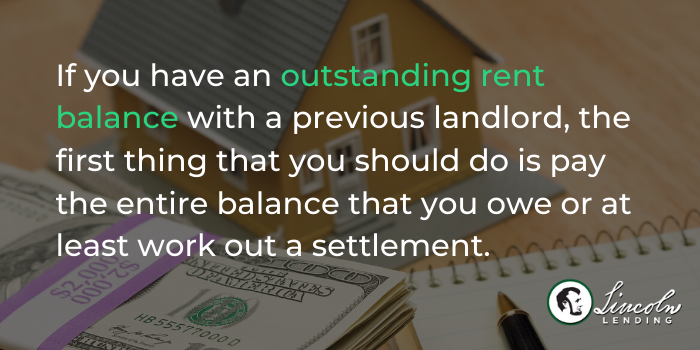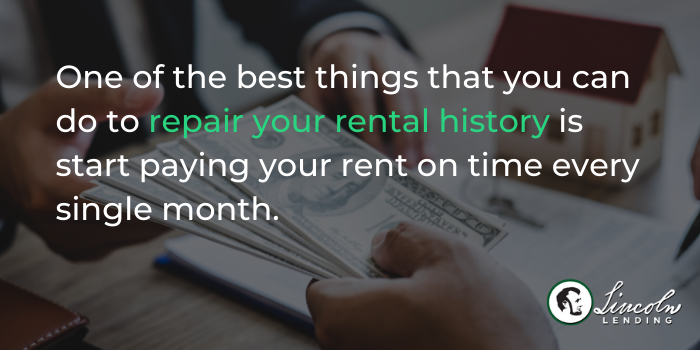True or false: your rental history can impact your mortgage.
True!
Many prospective homeowners are surprised to learn that their rental history can affect their mortgage eligibility and interest rate. Buying a home is supposed to be a special, exciting time, and the last thing you need is to be blindsided by a higher interest rate than you expected because of the mistakes you made as a renter.

If your rental history is less than stellar, don’t worry! Read on to learn about how a poor rental history can affect you and what to do if your past isn’t as pristine as you wish.
How a poor rental history can affect your mortgage application
Outstanding debt and late payments are the primary renting issues that can affect your mortgage application. Under normal circumstances, a landlord is unlikely to report you to a credit bureau. However, if you have a history of missed or late payments, they may decide to report you.
When a landlord goes out of his or her way to report missed and late payments, it acts as a red flag to a lender that you may be at high risk for defaulting on a loan. The consequence? You either won’t qualify for a mortgage, or you’ll only be eligible for a high-interest loan.
How to improve a poor rental history
Having a poor rental history doesn’t mean that you won’t qualify for a loan, but a better rental history can help you secure a loan with a lower interest rate. If you think that your rental history will negatively impact your mortgage, there are a few things you can do to help turn it around.
1. Settle up with your past landlords
If you have an outstanding rent balance with a previous landlord, the first thing that you should do is pay the entire balance that you owe or at least work out a settlement. Having accounts in collections lowers your credit score, so paying off collections can strengthen your credit profile and show your lender that you’ve learned from past mistakes. 
2. The co-signer solution
If paying off your outstanding debt doesn’t get you to your desired credit score, you may want to consider looking for a reliable co-signer. A co-signer with stable employment and a good credit history ensures your lender that if you don’t make your mortgage payments, the co-signer will. In some cases, this is the best thing you can do to help lenders see you as less of a default risk.
3. Create a recent history of on-time payments
One of the best things that you can do to repair your rental history is start paying your rent on time every single month. When your rent is 30 days or more past due, it can affect your loan eligibility. Many lenders send a document to a prospective borrower’s landlord to inquire about his or her recent rental history. The main thing lenders review is whether you’ve made any payments 30 days late in the year prior to your loan application. If you’ve been on time for a full year of rent payments, your chances of getting great loan terms rises.

4. View your rental history report yourself
Some credit reporting agencies, such as Experian, provide credit and rental history reports. Knowledge is power, so if you know exactly what your rental history says, you’ll be better prepared to fix any issues. You should also check your report for incorrect data related to your rental history. Accidents can happen, and your report may have mistakes that you need to correct.
Is it time to speak with a home loan coach?
Your rental history is just one piece of information that your lender reviews when determining your mortgage eligibility and interest rate. If your credit score and history aren’t what you’d like them to be, but you’re ready to take steps toward homeownership, get in touch with one of our Loan Officers today. We offer free, no-obligation home loan coaching to help you achieve your dream of homeownership.
